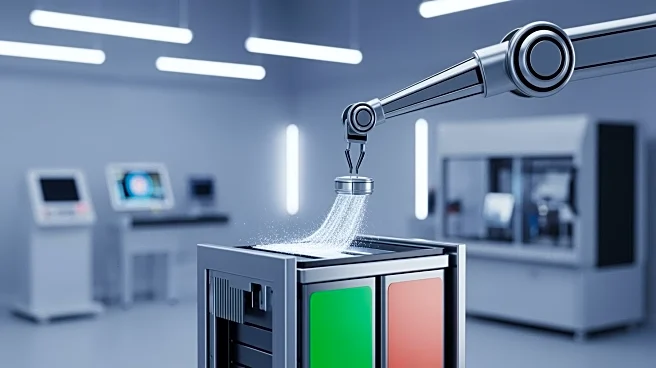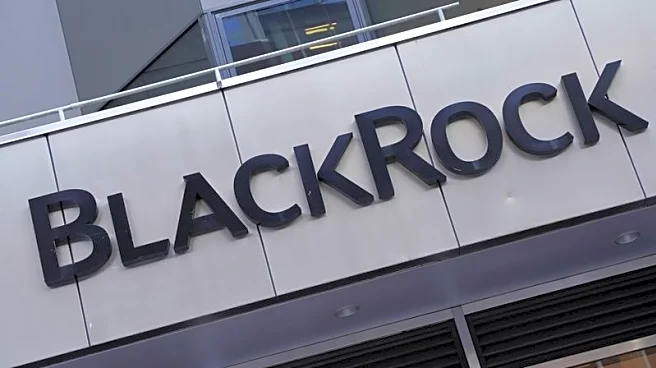What's Happening?
Anaphite, a Bristol-based startup, has developed a dry electrode coating technology that significantly reduces the carbon footprint associated with battery production. Traditional wet coating processes,
which are used in 99% of battery manufacturing, require large, energy-intensive ovens to dry electrode materials. Anaphite's dry coating process eliminates the need for these ovens, thereby reducing energy consumption and emissions. According to a lifecycle assessment by Minviro, Anaphite's technology can cut CO2 emissions by 3.57kg per kWh of cell capacity, potentially saving around seven million tonnes of CO2 annually if applied globally. The feasibility study, funded by a UK government grant under the Automotive Transformation Fund, confirms the environmental benefits of Anaphite's technology, aligning with upcoming EU battery regulations.
Why It's Important?
The development of Anaphite's dry coating technology is significant for the electric vehicle (EV) industry, which is under pressure to reduce its environmental impact. By lowering the carbon footprint of battery production, Anaphite's innovation supports the sustainability goals of EV manufacturers. This technology not only offers environmental benefits but also potential cost reductions, making it attractive to manufacturers seeking to improve efficiency and reduce operational costs. As the EU prepares to implement stricter battery regulations, including the requirement for a Battery Passport, Anaphite's technology positions itself as a viable solution for compliance, potentially influencing industry standards and practices.
What's Next?
With the positive results from the feasibility study, Anaphite is likely to pursue further development and commercialization of its dry coating technology. The company may seek partnerships with battery manufacturers to integrate this process into existing production lines. As the EU's battery regulations come into effect, Anaphite's technology could become a key component in meeting compliance requirements, driving adoption across the industry. Stakeholders, including environmental groups and regulatory bodies, may closely monitor the implementation and impact of this technology, potentially influencing future policy decisions.
Beyond the Headlines
The shift from wet to dry coating processes in battery production could have broader implications for industrial manufacturing, encouraging other sectors to explore similar innovations for reducing carbon emissions. This development highlights the importance of lifecycle assessments in validating environmental claims and could lead to increased transparency and accountability in manufacturing practices. As industries strive for sustainability, Anaphite's technology exemplifies how innovative solutions can address environmental challenges while offering economic benefits.










